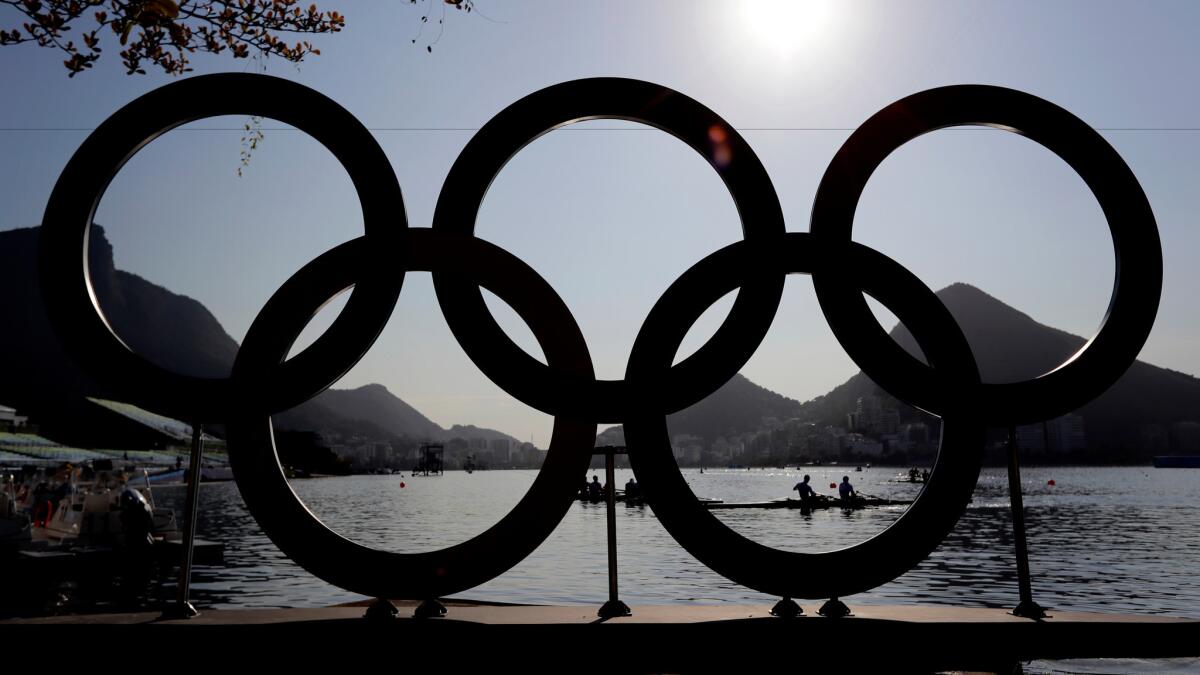IOC hesitates to help Rio de Janeiro with 2016 Summer Games debt

- Share via
Olympic leaders appear reluctant to help Rio de Janeiro organizers with a reported debt of more than $35 million left over from the 2016 Summer Games.
The executive board of the International Olympic Committee made an announcement on the matter Sunday, the first day of a special summertime session in Lausanne, Switzerland.
“The IOC has closed all of its obligations with the organizing committee in December 2016,” spokesman Mark Adams told reporters at a news conference, adding that the IOC had already “contributed a record amount to the successful staging of the Olympic Games and the Paralympic Games.”
That contribution totaled $1.53 billion, but Brazil’s economy slumped and organizers were forced to make last-second cutbacks and came up short of covering costs.
The IOC does not have enough detailed information about outstanding debts and has “deferred any further consideration at this stage,” Adams said.
The main topic of discussion at this week’s session will focus on a historic proposal to name two winners in the current host-city race between Los Angeles and Paris.
If members agree to follow an earlier recommendation from the executive board, one city will be awarded the 2024 Summer Games and the other will get 2028.
That vote is scheduled for Tuesday, after bid leaders from each city make formal presentations. Official selection of the host city or cities is expected in mid-September.
In other news on Sunday, the executive board announced the creation of an Independent Testing Authority to handle doping control at major events.
The new agency could be more effective than a patchwork of international sports federations and event organizers currently responsible for testing.
The Olympic movement has been scrambling to address anti-doping concerns in the wake of the Russian scandal and concerns about widespread cheating in track and wrestling as well as other sports.
IOC officials hope to have the independent testing group in place before the 2016 Pyeongchang Winter Games.
Follow @LAtimesWharton on Twitter
More to Read
Go beyond the scoreboard
Get the latest on L.A.'s teams in the daily Sports Report newsletter.
You may occasionally receive promotional content from the Los Angeles Times.







